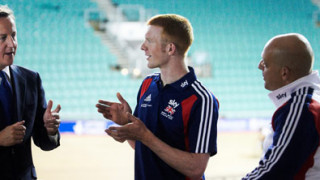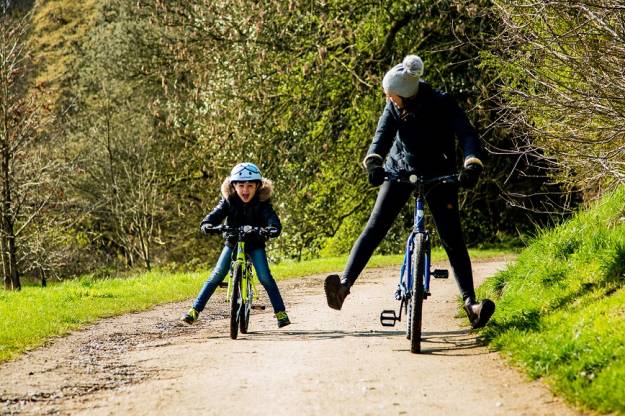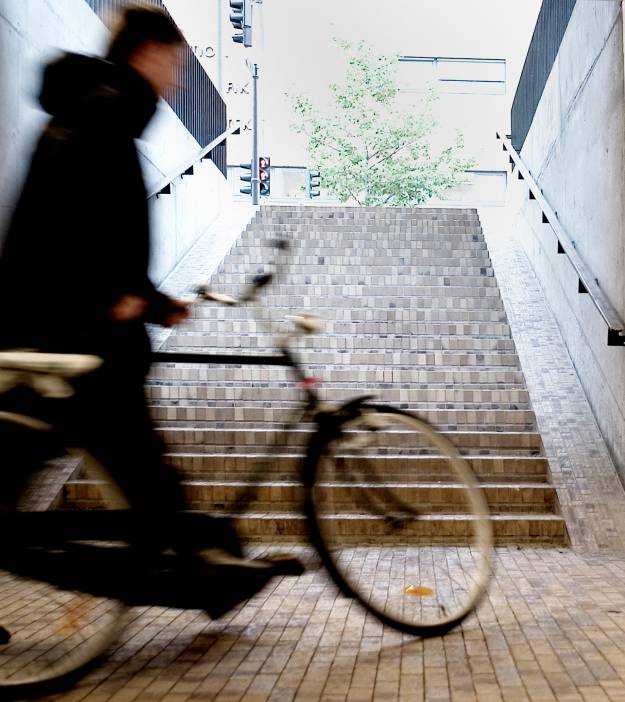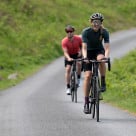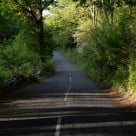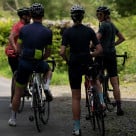
Keep Racing on the Roads Campaign
British Cycling's Campaigning Home
British Cycling's work to secure the future of road racing in the UK is ongoing. Key issues and recent developments include:
REMINDER OF KEY ISSUES -
- Outdated legislation - Road racing is regulated according to the Cycle Racing on the Highway Regulations, 1960. Under these regulations, the police must be notified of an upcoming road race and the race must comply with what are termed the standard conditions, such as a limit on the number of riders. Additionally, the police have the right to impose any further conditions they deem appropriate, which does at times place unreasonable demands on a race organiser.
- Marshalling - A race organiser's job would be much easier and police time saved if there was a clear practice established which allowed marshals to stop and slow traffic briefly in order to let a race pass.
- Bridleways - Under the Road Traffic Act 1988, cycle races are expressly forbidden from crossing or going along bridleways, even though quad bike racing and motor rallies are allowed. This legislative anomaly acts as a significant constraint on the development of mountain biking in the UK.
- Police Charging - One of the issues which British Cycling has been working with the government on is the problem of high and inconsistent charges for police presence at some higher level cycle races.
KEY DEVELOPMENTS
During his visit to the home of British Cycling, David Cameron is pictured in discussion with GB rider Ed Clancy and Performance Director Dave Brailsford
1. PRIME MINISTER, SECRETARY OF STATE & SPORT MINISTER ALL MAKE VISITS TO BRITISH CYCLING
Our work has received support from a number of senior governmental figures, and Culture Minister Jeremy Hunt visited the Manchester velodrome and met with British Cycling's Chief Executive Ian Drake and Policy and Legal Affairs Director Martin Gibbs, to discuss some of the issues we have been addressing. The DCMS have been very helpful and supportive of our work to help Keep Racing on the Roads.
2. SPORT MINISTER COMMITTED TO HELP BRITISH CYCLING
Sport Minister Hugh Robertson backed the changes required to the 1960 Highway Regulations by confirming in a letter to British Cycling that his office will continue to provide support where needed as our negotiations continue with the Department for Transport (DfT).
The Minister was also pleased to confirm that a power has been identified under the Road Traffic Act by which volunteer marshals can be empowered to stop traffic at road races, with appropriate DfT signs. The advantage to this approach is that the power can, subject to successful piloting, be immediately implemented. Watch out for further news on this development.
Mr Robertson recommended the following to increase the number of road races in the UK:
• Running a pilot scheme allowing volunteer race marshals to control cars with a traffic sign as soon as possible;
• Continuation of cross government forum groups involving British Cycling, ACPO, Department for Culture Media and Sport and the DfT;
• Creation of a national ACPO cycling forum;
• Review of training for race marshals to standardise safety and legal obligations;
• Appointment of a National Liaison Officer to promote a strong working partnership between British Cycling and the police; and
• All police forces to adopt ACPO's best practice guidance on the policing of cycle races.
3. ACPO LIAISON TO BRITISH CYCLING
British Cycling through its work with the ‘Cycle racing on the highways workgroup’ took the opportunity to contract the time of an Inspector form the Met Police to help British Cycling react to ongoing cycle race application and delivery issues faced around the country. Working collaboratively we have considered, created and implemented the use of a new, legal, stop sign for cycle racing which is continuing its pilot around the country. The insight gained form this relationship has been very helpful during a time of significant growth in cycling events on the highway.
4. MARSHALS SIGNS PILOT
British Cycling continues to pilot the “Stop Event” signage scheme that empowers volunteer marshals with the ability to stop traffic during cycle road races.
The signs give marshals the legal power, and therefore confidence to halt traffic at junctions and is seen as one of the key developments to help protect the future of road racing in this country.
Developed between the Department for Transport and British Cycling, the signage programme was first tested in Oxfordshire last autumn and sees each marshal undergoing a mandatory training session focussing on positioning and timing before they are allowed to use the sign.
The response we have received so far from marshals, riders and event organisers has been overwhelmingly positive and we look forward to engaging with police constabularies and gradually rolling out the signs around the country.
5. RED TAPE REVIEW
British Cycling members responded superbly to our calls to make their voices heard on the Department of Transport Red Tape Review. The 1960 Cycle Racing on the Highways Regulations got the most attention out of all DFT legislation and the Review recommended that they be updated "to make them clearer and fit for purpose." The DfT’s report on the Red Tape Challenge which they published in December 2011 said “The British Cycling Federation and the police are discussing ways in which the regulations can be simplified. We will implement changes in the light of their recommendations.” Here’s the link to the report: http://assets.dft.gov.uk/consultations/gov-20110520/rtc-road-transport-summary.pdf
The review also considered the race marshal issue and British Cycling members and other respondents advocated that marshals be empowered to make their task safer and more straightforward. In relation to bridleways, British Cycling members also put forward that race organisers would find it helpful if the total restriction was "relaxed to permit race routes to cross and take in limited sections of bridleways.
6. POLICE CHARGING
One of the issues which British Cycling has been working with the government on is the problem of high and inconsistent charges for police presence at some higher level cycle races. The Department for Culture Media and Sport (DCMS) took this issue up for us and we were the only national governing body to be able to make representations to the senior police officers redrafting the Association of Chief Police Officers (ACPO) guidance for police charging.
We worked closely with the DCMS and ACPO on the redrafting of sections of the guidance and the new version is now being used by police forces – Download pdf - link
It was agreed that the new draft should include specific references to cycle racing to make it clear that the majority of cycle races - volunteer supported, largely non-commercial - should not attract anything near to full cost recovery. This should enable race organisers who have been hit with high levels of cost recovery in the past to put together a persuasive case that they should be charged less than 50% of the policing costs. The guidance also makes it clear that many road races will attract no charge at all.
The new guidance is now much clearer on the fact that non-commercial events need to be considered in the context of community policing and includes a section establishing that most cycle races are non-commercial events that generate revenue only to cover organisational costs are therefore should not be treated in the same way as commercial events.


